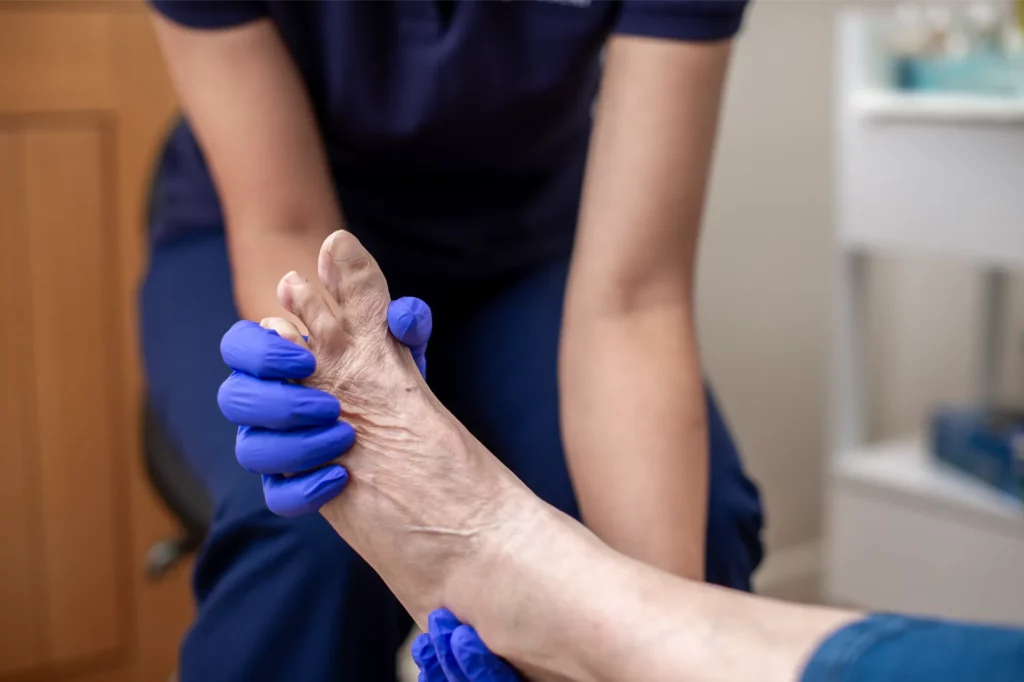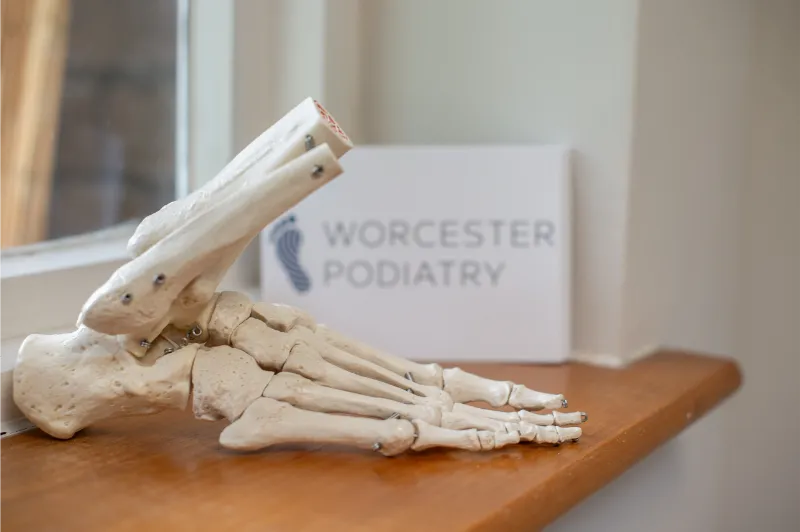Bunions

Understanding Bunions
Bunions, also known as hallux valgus, are bony bumps that form on the joint at the base of your big toe. They can cause pain, swelling, and difficulty wearing shoes. Understanding the causes of bunions can help in both prevention and treatment.
Common Causes
- Genetics: Bunions often run in families. If your parents or grandparents had bunions, you are more likely to develop them as well. The inherited shape and structure of your foot can contribute to bunion formation.
- Footwear: Wearing tight, narrow, or high-heeled shoes can contribute to the development of bunions. These types of shoes can push your big toe into an unnatural position, putting pressure on the joint and causing it to jut outwards.
- Foot Mechanics: Certain foot types, such as flat feet or low arches, can make you more prone to bunions. These foot mechanics can lead to imbalances that put extra stress on the big toe joint.
- Injury: Trauma or injuries to the foot can lead to the development of bunions. Damage to the big toe joint or surrounding ligaments can cause the joint to misalign over time.
- Inflammatory Conditions: Conditions such as rheumatoid arthritis can cause inflammation in the big toe joint, leading to the development of bunions. Chronic inflammation can damage the joint and surrounding tissue.
- Age: As we age, the wear and tear on our feet can contribute to the development of bunions. The joint at the base of the big toe can weaken over time, making it more susceptible to misalignment.
Prevention Tips
- Choose Proper Footwear: Wear shoes that provide adequate room for your toes. Avoid high heels and shoes with narrow toe boxes. Look for shoes with good arch support and cushioning.
- Maintain a Healthy Weight: Excess weight can put extra pressure on your feet, contributing to the development of bunions.
- Use Orthotics: Custom orthotic devices can help correct foot mechanics and provide support, reducing the risk of bunion formation.
- Practice Good Foot Care: Keep your feet healthy by maintaining good hygiene, trimming your toenails properly, and addressing any foot pain or abnormalities promptly.
- Strengthen Your Feet: Exercises that strengthen the muscles in your feet can help improve foot mechanics and reduce the risk of bunions.
By understanding these causes and taking preventative measures, you can reduce the risk of developing bunions and maintain healthier feet.

Comprehensive Bunion Appointments
If you suspect you have a bunion, our comprehensive bunion appointment is designed for you. This thorough examination includes an assessment of your foot mechanics, gait analysis, and a detailed discussion of your symptoms. Based on the results, we will develop a personalised treatment plan tailored to your needs. Our expert podiatrists will guide you through every step, ensuring you receive the best possible care to relieve pain and improve your foot health.
Call the biomechanics experts at The Worcester Podiatry Clinic on 01905 428434 in Worcester
Happy Feet Reviews!
See Why Patients Choose Us
Trustindex verifies that the original source of the review is Google. Fantastic service staff were excellent from the receptionist to Patti the clinician booked again and would recommend to allTrustindex verifies that the original source of the review is Google. First time here, feet feel so much better, would highly recommend, excellent service. Thank you so much.Trustindex verifies that the original source of the review is Google. Really good and goodTrustindex verifies that the original source of the review is Google. The team are always super friendly, helpful and knowledgeable. Since I’ve been coming for treatment I’ve seen a definite improvement and will continue to book in regularly.Trustindex verifies that the original source of the review is Google. A lovely place to visit and the staff are so very helpful and friendly even a nice hot drink and done a great job on my feet 😀Trustindex verifies that the original source of the review is Google. Very professional and whole experience was very pleasant the changes that have been made are most pleasant and welcoming


